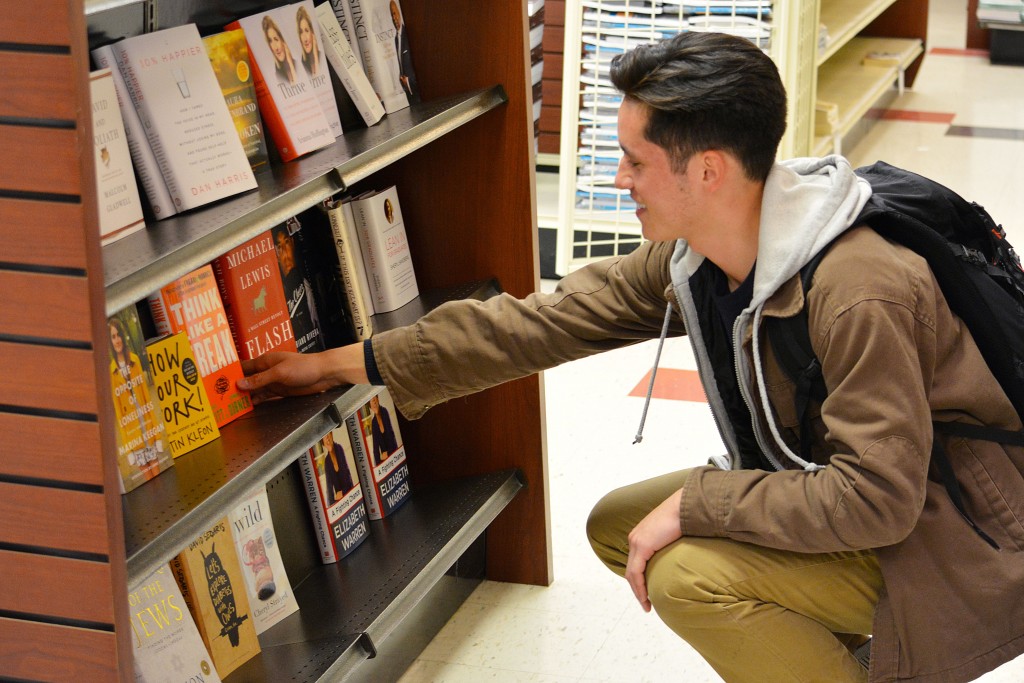
The Binghamton University bookstore has implemented a new price-match policy that could help lessen the toll textbooks can take on students’ bank accounts.
The price-match policy states that if a student buys a textbook from the University bookstore but finds a cheaper version online within seven days of the original purchase, the bookstore will refund the difference. According to Heather Sheffer, the BU bookstore manager, the price-match program was instituted by the bookstore’s parent company, Barnes and Noble College, in order to offer students more ways to save money.
The policy includes used, new and rental textbooks as long as the cheaper book is the same edition. It does not include digital books or special orders, which are books not being used for a class that semester. The bookstore is funding the new policy with money from their own budgeted account.
Although students could initially go to websites like Amazon or Chegg before the bookstore, some students see the new policy as advantageous.
Adin Fuchs, a junior double-majoring in business administration and art and design, said that the new policy was long overdue.
“I think the Binghamton bookstore has been ripping students off for a while now,” she said. “I’m sure they realized they were losing money because cheaper prices were being offered online, so it’s a smart move. It’s gong to benefit both the bookstore and students. It’ll be nice to have the better prices in convenience of the bookstore and not have to worry about when your book is going to arrive in the mail.”
Websites that are eligible for price match include Amazon, Chegg and Barnes and Noble. However, third party sellers, or “other sellers” on Amazon, as well as Barnes and Noble Marketplace do not qualify for price match. Materials accompanying different textbook editions such as workbooks and CDs will also be incorporated into the price-match policy.
Samantha Ng, a freshman double-majoring in human development and Asian American studies, said while this new policy seems promising, the bookstore should make the policy more well-known, as students tend to go to other websites first.
“I think the new price-match policy is going to be useful since students go to the bookstore for a quick and easy grab but at the same time, it’ll need more attention,” Ng said. “Although I’m a freshman, I’ve met a lot of people who don’t normally think to go to the bookstore first because they already know the prices are higher.”
Students like Carolina Hernandez, a senior majoring in integrative neuroscience, said the policy should have been implemented sooner. According to her, it would have saved her a lot of money throughout most of her semesters at BU.
“I normally never even check the bookstore in the first place because the prices can be so outrageous,” Hernandez said. “I think it will be really useful, especially for people who take classes with extensive textbook lists. Every semester my books can be like, $200 and I have to buy three of them.”
Sheffer said that the price-match policy will continue into future semesters and that it will ensure that students get the best-possible prices for their materials.
“The bookstore continually looks for ways to support students academically and socially as well as offer savings to its students,” Sheffer said. “The price-match program is one more way to accomplish that goal.”


